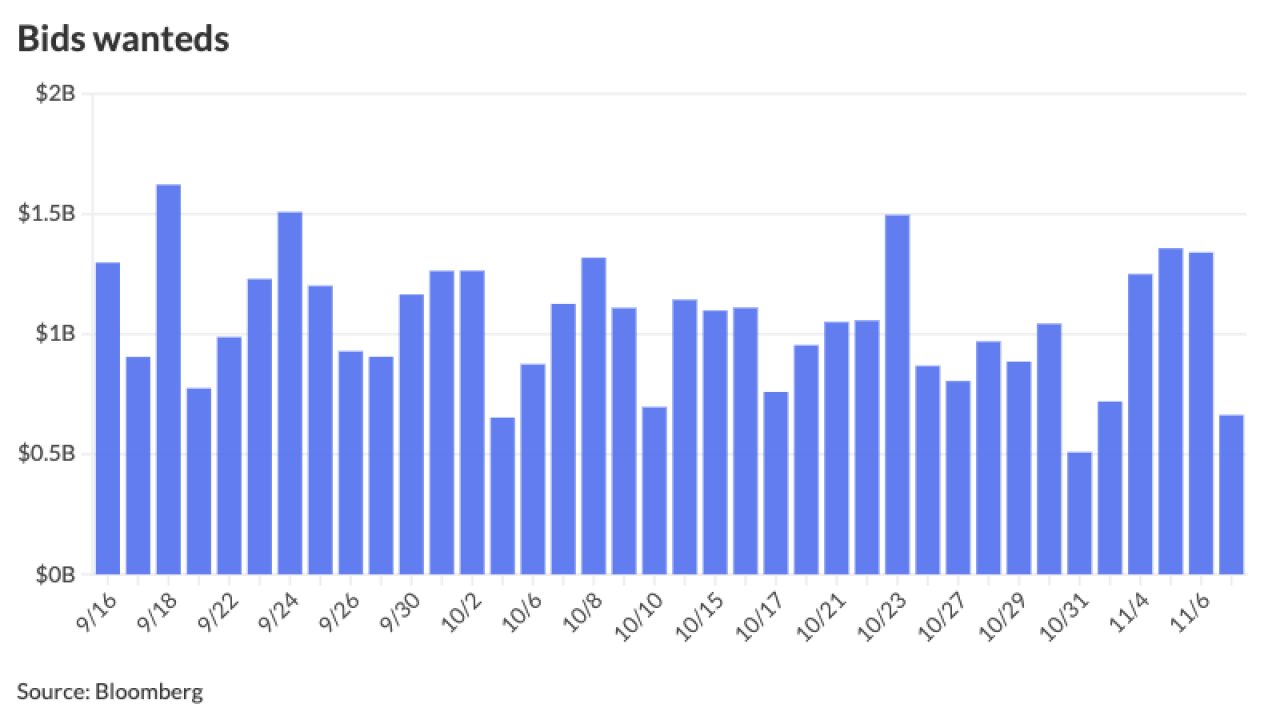Want unlimited access to top ideas and insights?
The U.S. services sector expanded at a faster pace in November as the non-manufacturing index grew to 60.7 from 60.3 in October, on a seasonally adjusted basis, the Institute for Supply Management reported Thursday.
An index reading below 50 signals a slowing economy, while a level above 50 suggests expansion.
Economists polled by IFR Markets had expected a 59.1 level.

The prices paid index rose to 64.3 from 61.7, the 33rd consecutive month prices were growing, the ISM said. The employment index fell to 58.4 from 59.7.
The business activity/production index gained to 65.2 from 62.5, the new orders index was at 62.5, up from 61.5; backlog of orders increased to 55.5 from 53.5; new export orders slid to 57.5 from 61.0; inventories gained to 57.5 from 56.0; inventory sentiment declined to 60.0 from 62.0; the supplier deliveries index fell to 56.5 from 57.5; and imports grew to 54.5 from 51.0.
Members' general comments on business in the month included:
- “Relatively stable business conditions. Input costs are corn- and soy-based, so the ongoing trade dispute with China presents challenges and opportunities. The chief dilemmas are: When will the dispute be resolved, and what will the market reaction be?” (Agriculture, Forestry, Fishing & Hunting)
- “Commercial construction is strong. Employment is struggling due to lack of qualified talent.” (Construction)
- “Midway through Q4, and on track for another good year. Conditions are favorable and look to remain so going into 2019.” (Finance & Insurance)
- “Business is booming. Labor costs are rising.” (Information)
- “November continues our busy season, at a higher rate than we anticipated. Both internal and supplier resources have had success gaining some ground back on backlog of orders. A large volume of orders is always expected this time of year, but this year, it has been busier than our organization and suppliers anticipated.” (Management of Companies & Support Services)
- “Business continues to improve internationally, but there is a slowdown in domestics offshore and leveling in domestic onshore, which directly affects our business. There are concerns about domestic trucking and international flat rack availability. There is also discussion of implementation of trucking e-log requirements in Mexico sometime in 2019 or 2020. That could affect our trucking providers’ lead time for delivery-support services in the Mexican region.” (Other Services)
- “The imposition of and threats to impose tariffs are having a negative effect on several capital-improvement projects in progress. The contractors have submitted change order requests for those items impacted, especially those with a steel component. The increases are not expected or budgeted for.” (Public Administration)
- “The business is preparing for the later phases of tariffs by slowing down growth and capital investment until the future becomes clearer. We are starting to pull months of inventory in before the next round of tariffs hit, so there is a lot of activity on our logistics side.” (Retail Trade)
- “We are still experiencing low service levels with transportation.” (Wholesale Trade)





